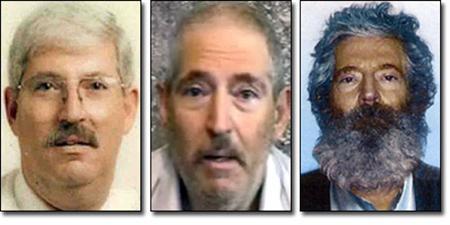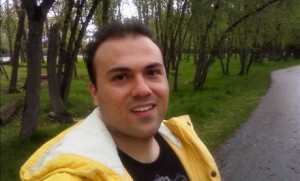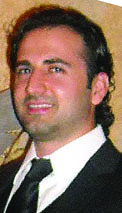January 31-2014

The Obama Administration now has the families of two of the three Americans held captive in Iran mad at it for not doing enough to free their loved ones.
The Florida family of Robert Levinson last week complained that the Administration had abandoned him. Now 65, Levinson disappeared on Kish Island in March 2007. The Islamic Republic denies knowing anything about his whereabouts although he was last seen in the custody of Iranian police officers.

Levinson’s eldest son, Dan, called on the government to admit publicly that his father was in Iran working for the CIA. “I hope they are hearing our request that [US government officials] acknowledge what he was doing over there and they understand that the family does want this acknowledged now. And we think it would be more of a positive step to getting him home.”

She said, “Unfortunately we have not been able to get any intermediaries over there to Iran to work on the case. And now is the time for the United States government to authorize someone to do this.”
A few months ago, Nagh-meh Abedini, wife of Christian convert Saeed Abedini, accused the Obama Administration of not doing enough to bring her husband back home. Naghmeh suggested the administration should make freedom for her husband a condition before any sanctions are lifted.
The Abedinis are Evangelical Christians supported by organizations on the Christian right that are already highly critical of the Obama Administration and always looking for more ways to tackle the Administration.
The Levinsons have not joined in the Abedini tactic. They did not suggest any policy the Obama Administration should adopt other than stating on the record that Robert Levinson worked for he CIA. US officials have privately said they have feared that linking Levinson to the CIA could result in his execution by Iran.
Dan Levinson seem to rely chiefly on hope that President Rohani would see a benefit from freeing his father. “What better way could he show the world that he is all about human rights and wants to do humanitarian deeds than by helping a normal American family who is not political, who has no concern other than getting their father home,” Dan Levinson said.
He said that Rohani “has the power to do that,” although an Iranian president has no say over who is detained in the Islamic Republic.
The third American held by Iran is Amir Hekmati. He was born in Arizona of Iranian-American parents and served in the US Marine Corps. After leaving the Marines. He decided he wanted to visit Iran for the first time in his life and see his two grandmothers. He was arrested in Tehran and forced to confess on television. The Farsi voice-over by a translator quoted him as saying, “I joined the military and was sent to intelligence school.” But in the background, Hekmati could be heard saying in English, “I joined the Marine Corps and was sent to infantry school.”
Hekmati’s family has been very active in keeping his case in the public eye. But it has not accused the US government of not doing enough.
If all three families were to join together and demand that the three men be freed before any more sanctions are lifted, that could mobilize public opinion against any deal with Iran while the three are in Iran.
There is no indication the three families have communicated with each other, let alone coordinated their activities. Naghmeh Abedini lives in Idaho; the Hekmati family is in Michigan; and the Levinsons are in Florida.
Levinson’s CIA ties are complicated. Stories by the Associated Press and The New York Times last month detailed those links. They make clear that Levinson was not a spy hired by the CIA intelligence collection division. Instead, he was hired as a contractor by the CIA’s analysis office dealing with issues like money laundering. He was a private investigator looking into such crimes for US businesses and he wrote many analytical reports for the CIA analysts that gave them more insight into the tactics of financial criminals.
One of Levinson’s contracts had him looking into kickbacks and bribes by foreign investors and Iranian officials. He was reportedly working for an American tobacco company that suspected foreign competitors of underhanded operations in Iran.
He emailed the woman at the CIA who had hired him and said he was preparing to meet a contact from Iran. “This meeting will take place either in Dubai or on an island nearby and should cost about two or three thousand dollars,” he wrote in the email. He said nothing about flying to Iran’s Kish Island, which foreigners can enter without a visa.
His CIA boss said she threw up when she later learned he had gone to Iran. She was fired by the CIA.
As the news reports laid out the story, Levinson was a contract employee of the CIA who was neither authorized to spy nor to enter Iran.
The Levinson family showed CNN documents it said it obtained from a source in Iran. One was an arrest order and another was a memo saying Levinson had been diagnosed with diabetes, hospitalized and had fallen into a coma. The family said the FBI translated the documents for them but said it could not verify if they were authentic.
Meanwhile, Abedini, 33, has reportedly been moved out of a cellblock he shared with convicted murderers and into one assigned to political prisoners.
Abedini was transferred several weeks ago to Rajaishahr prison in Karaj. The American Center for Law and Justice (ACLJ), an Evangelical group, announced the shift. It said, “Make no mistake, Pastor Saeed is still in the deadliest prison in Iran facing deteriorating medical conditions.” But ACLJ said he is now receiving better meals and has been able to see visitors from his family.
ACLJ said the family told it that Abedini’s health is deteriorating and a doctor at the prison said he requires surgery, reportedly for internal injuries suffered from beatings during interrogation.
President Obama asked President Rohani to free all three men during their 15-minute telephone conversation in September, the White House said at the time. The Islamic Republic has said nothing about that part of the conversation.
